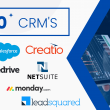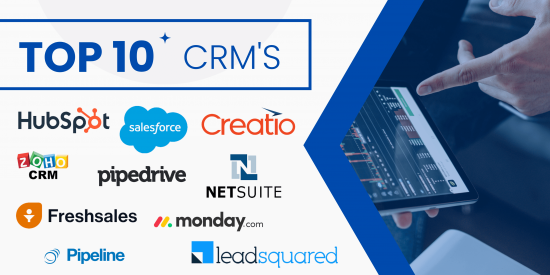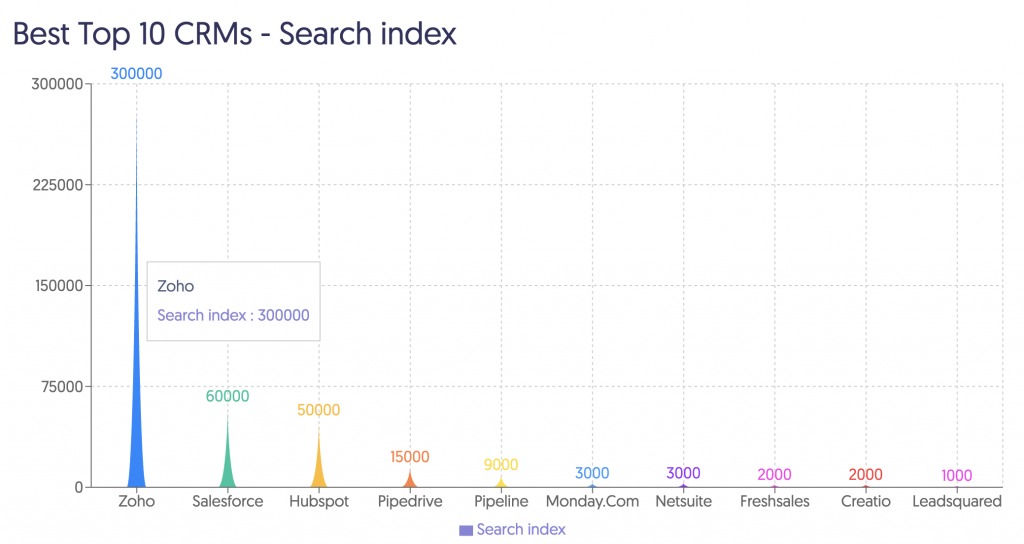Choosing the Right CRM to Streamline Your Business and Boost Revenue
In the competitive business landscape of the United States and other parts of the world, selecting the right CRM – Customer Relationship Management system is critical for managing customer interactions, streamlining sales processes, and boosting revenue. With a plethora of CRM options available, businesses must carefully consider which system to implement. To assist in the decision-making process, we’ve compiled a list of the top 10 CRMs for businesses in the United States to consider. These popular options include HubSpot, Pipedrive, Salesforce, NetSuite, Monday.com, Creatio, Freshsales, Zoho, LeadSquared, and Pipeline. By evaluating these top ten CRMs, businesses can make an informed decision to optimize their customer relationship management and drive growth in the competitive market like the United States, United Kingdom and more.
CRM | User Base | Pricing | Revenue | Rating | Number of Ratings | Headquarters |
| HubSpot CRM | 100,000+ | Free – $1,200/month | $883 million (2020) | 4.5/5 | 5,300+ | Cambridge, MA |
| Pipedrive CRM | 95,000+ | $12.50 – $99/user/month | Not publicly available | 4.4/5 | 2,100+ | New York, NY |
| Salesforce CRM | 150,000+ | $25 – $300/user/month | $21.3 billion (2021) | 4.2/5 | 10,000+ | San Francisco, CA |
| NetSuite CRM | 19,000+ | Not publicly available | $1.1 billion (2020) | 4.2/5 | 120+ | San Mateo, CA |
| Monday.com CRM | Not publicly available | $8 – $16/user/month | $550 million (2021) | 4.5/5 | 1,000+ | Tel Aviv, Israel |
| Creatio CRM | 7,000+ | $25 – $55/user/month | Not publicly available | 4.2/5 | 600+ | Boston, MA |
| Freshsales CRM | Not publicly available | $12 – $79/user/month | Not publicly available | 4.5/5 | 2,300+ | San Mateo, CA |
| Zoho CRM | 250,000+ | $12 – $100/user/month | Not publicly available | 4.3/5 | 3,000+ | Pleasanton, CA |
| LeadSquared CRM | 2,000+ | $15 – $125/user/month | Not publicly available | 4.4/5 | 50+ | Bangalore, India |
| Pipeline CRM | Not publicly available | $25 – $49/user/month | Not publicly available | 4.7/5 | 80+ | Toronto, Canada |
Which CRM Software is Right for Your Business?
CRM has become an essential component for every organization in the current competitive business environment. An effective CRM software can aid businesses in managing and expanding their customer base, simplifying their sales processes, and boosting revenue. However, with a plethora of CRM options in the market, selecting the most suitable one for your organization can be a daunting task. To assist you in the process, we have compiled a list of the top 10 CRMs that businesses should consider:
HubSpot

HubSpot CRM is a free, cloud-based CRM software that provides a complete suite of sales tools to manage and grow your sales pipeline. It includes contact management, lead tracking, email integration, and reporting features.
User Base: HubSpot is used by over 100,000 businesses worldwide.
Pricing: HubSpot offers a range of pricing plans, including a free CRM. Paid plans start at $45 per month and go up to $3200 per month, depending on the features included.
Company Size: HubSpot is suitable for small to medium-sized businesses.
Revenue: HubSpot generated $883 million in revenue in 2020.
Headquarters: HubSpot is headquartered in Cambridge, Massachusetts, USA.
Advantages: HubSpot is an all-in-one CRM that includes sales, marketing, and customer service tools. Its free CRM is a great option for small businesses just starting. HubSpot’s robust analytics and reporting features make it easy to track performance and make data-driven decisions. The platform is also known for its user-friendly interface and extensive knowledge base.
Disadvantages: HubSpot’s pricing can be expensive for larger businesses, and some users may find the system’s customization options limited.
Pipedrive
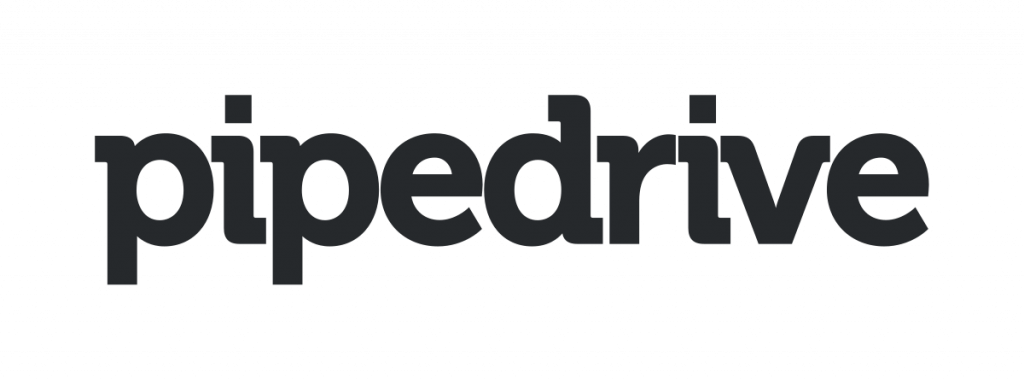
Pipedrive CRM is a sales-focused CRM platform that helps sales teams manage and visualize their sales pipeline. It provides a range of features such as deal tracking, email integration, and activity reminders.
User Base: Pipedrive is used by over 90,000 businesses worldwide.
Pricing: Pipedrive’s pricing plans start at $15 per user per month and go up to $99 per user per month.
Company Size: Pipedrive is best for small to medium-sized businesses.
Revenue: Pipedrive generated $100 million in revenue in 2020.
Headquarters: Pipedrive is headquartered in Tallinn, Estonia.
Advantages: Pipedrive is a simple and intuitive CRM that focuses on managing the sales pipeline. Its visual interface and drag-and-drop features make it easy to use, and its automation capabilities help save time. Pipedrive also offers mobile apps and integrations with popular tools like Google Apps and Zapier.
Disadvantages: Pipedrive may not be suitable for businesses with complex sales processes, and its reporting features may be limited.
Salesforce

The Salesforce CRM is a cloud-based solution that facilitates customer relationship management across all customer touchpoints, encompassing sales, marketing, and customer service. Its comprehensive view of customer data empowers teams to effectively manage the customer journey at every stage.
User Base: Salesforce is used by over 150,000 businesses worldwide.
Pricing: Salesforce offers a range of pricing plans, starting at $25 per user per month and going up to $300 per user per month.
Company Size: Salesforce is a versatile CRM system that caters to businesses of varying sizes, ranging from small-scale startups to established enterprises.
Revenue: Salesforce generated $21.25 billion in revenue in 2020.
Headquarters: Salesforce is headquartered in San Francisco, California, USA.
Advantages: Salesforce is renowned for its comprehensive tools for sales, marketing, and customer service, as well as its flexibility in customization. It is famous CRM systems and boasts a vast ecosystem of third-party integrations. Salesforce also provides its users with extensive training and certification programs.
Disadvantages: Salesforce’s pricing can be expensive for small businesses, and its complexity may require significant training to use effectively.
Creatio

Creatio is a cloud-based CRM platform that provides automating marketing, sales, and service processes. Its features include lead and opportunity management, email marketing, and customer service ticketing, all designed to help businesses manage and nurture their customer relationships effectively.
User Base: Creatio is used by over 7,000 businesses worldwide.
Pricing: Creatio’s pricing plans start at $25 per user per month and go up to $50 per user per month.
Company Size: Creatio is suitable for small to medium-sized businesses.
Revenue: Creatio’s revenue is not publicly available.
Headquarters: Creatio is headquartered in Boston, Massachusetts, USA.
Advantages: Creatio is a low-code CRM platform that offers automation tools, analytics, and integrations with third-party apps. It provides a range of features for sales, marketing, and customer service. Creatio’s drag-and-drop interface and pre-built templates make it easy to use, and its pricing plans are affordable for small businesses.
Disadvantages: Advanced users may find that Creatio’s customization capabilities are restricted, while larger enterprises with intricate sales processes may not find it appropriate.
Freshsales

Freshsales CRM is a CRM platform that focuses on sales management, enabling businesses to effectively manage their sales pipeline through features such as lead management, deal tracking, and email integration.
User Base: Freshsales is used by over 15,000 businesses worldwide.
Pricing: Freshsales’ pricing plans start at $12 per user per month and go up to $79 per user per month.
Company Size: Freshsales is suitable for small to medium-sized businesses.
Revenue: Freshsales’ revenue is not publicly available.
Headquarters: Freshsales is headquartered in San Mateo, California, USA.
Advantages: Freshsales is a user-friendly CRM that offers features for sales, marketing, and customer service. It provides automation tools, analytics, and integrations with popular apps like Google Apps and Zapier. Freshsales also offers a free plan for up to ten users.
Disadvantages: Freshsales’ reporting features may be limited, and its customization options may not be advanced enough for larger businesses.
Zoho

Zoho CRM is a cloud-based CRM platform that offers a range of sales, marketing, and customer service features. It provides tools for lead management, opportunity tracking, and customer service ticketing.
User Base: Zoho is used by over 50 million users worldwide.
Pricing: Zoho offers a range of pricing plans, including a free CRM. Paid plans start at $12 per user per month and go up to $100 per user per month.
Company Size: Zoho is suitable for small to medium-sized businesses.
Revenue: Zoho’s revenue is not publicly available.
Headquarters: Zoho is headquartered in Chennai, India.
Advantages: Zoho is an all-in-one CRM that offers features for sales, marketing, customer service, and project management. It provides extensive customization options, a user-friendly interface, and integrations with over 500 third-party apps. Zoho also offers a free plan for up to three users.
Disadvantages: Zoho’s reporting features may be limited, and its pricing plans can be expensive for larger businesses.
LeadSquared

LeadSquared CRM is a cloud-based CRM platform that provides features for lead management, lead scoring, and lead nurturing. It also offers marketing automation and sales automation features.
User Base: LeadSquared is used by over 2,000 businesses worldwide.
Pricing: LeadSquared’s pricing plans start at $15 per user per month and go up to $125 per user per month.
Company Size: LeadSquared is suitable for small to medium-sized businesses.
Revenue: LeadSquared’s revenue is not publicly available.
Headquarters: LeadSquared is headquartered in Bangalore, India.
Advantages: LeadSquared is a cloud-based CRM that offers automation tools, analytics, and integrations with popular apps like Google Apps and Zapier. It provides features for sales, marketing, and customer service, and its pricing plans are affordable for small businesses.
Disadvantages: LeadSquared’s customization options may be limited for more advanced users, and its reporting features may not be as robust as other CRM systems.
Pipeline
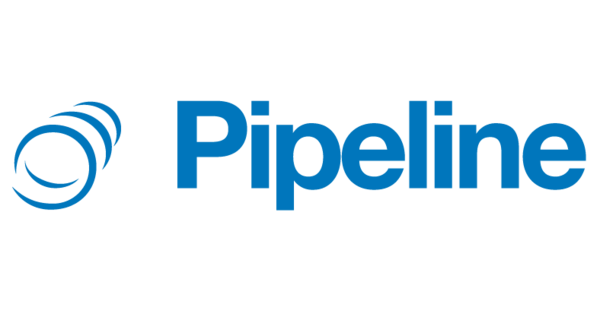
Pipeline CRM is a sales-focused CRM platform that provides features for lead tracking, deal management, and reporting. It is designed to help businesses streamline their sales processes and increase productivity.
User Base: Pipeline is used by over 6,000 businesses worldwide.
Pricing: Pipeline’s pricing plans start at $25 per user per month and go up to $99 per user per month.
Company Size: Pipeline is best for small to medium-sized businesses.
Monday.com

Monday.com is a customizable CRM that offers features for project management, task tracking, and collaboration. It provides extensive customization options, integrations with popular apps like Zapier and Slack, and a user-friendly interface.
User Base: Monday.com is used by over 127,000 organizations worldwide.
Pricing: Monday.com’s pricing plans start at $8 per user per month and go up to $24 per user per month.
Company Size: Monday.com is suitable for small to large-sized businesses.
Revenue: Monday.com’s revenue is not publicly available.
Headquarters: Monday.com is headquartered in Tel Aviv, Israel.
Advantages: Monday.com is a customizable CRM that offers features for project management, task tracking, and collaboration. It provides extensive customization options, integrations with popular apps like Zapier and Slack, and a user-friendly interface. Monday.com is flexible and can be used for various business functions, making it a versatile CRM option.
Disadvantages: Include its potential lack of advanced features for sales, marketing, and customer service when compared to other specialized CRM platforms. For businesses with complex sales processes, Monday.com may not be the ideal option, and the pricing plans could be more expensive compared to other CRM alternatives, according to some users.
NetSuite
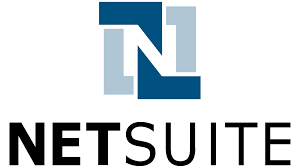
NetSuite CRM is a cloud-based solution that assists businesses in simplifying their sales procedures by providing a variety of features for effective customer relationship management. The system’s lead management capabilities are a standout feature, as they allow businesses to gather leads from multiple sources, assess their worthiness, and assign them to the appropriate sales personnel.
NetSuite CRM also provides opportunities management features, which enable sales teams to track the progress of deals throughout the sales process. Additionally, it offers order management features, which enable businesses to manage their orders from creation to fulfillment. This ensures that businesses have complete visibility into their sales pipeline and can make informed decisions about how to allocate their resources.
However, one of the potential downsides of NetSuite CRM is that its interface can be complex, which may require some training for users who are not familiar with the platform. Additionally, some users have reported that Customer support need to be improved.
User Base: NetSuite CRM is used by over 26,000 businesses worldwide.
Pricing: NetSuite CRM’s pricing plans are customized based on the needs of each individual business. However, it is generally considered to be a more expensive option compared to other CRM systems.
Company Size: NetSuite CRM is suitable for small to large-sized businesses across various industries.
Revenue: NetSuite’s revenue was $4.4 billion in 2020.
Headquarters: NetSuite is headquartered in San Mateo, California, USA.
Advantages: NetSuite CRM offers a range of features for sales, marketing, and customer service. It provides a unified platform for businesses to manage their entire customer lifecycle, including order management and e-commerce. NetSuite’s cloud-based system allows for easy access and collaboration among team members, and its reporting capabilities are highly customizable.
Disadvantages: NetSuite CRM’s pricing may be prohibitive for SMB or those with a limited budget. The system can also be complex and require significant training to use effectively.



